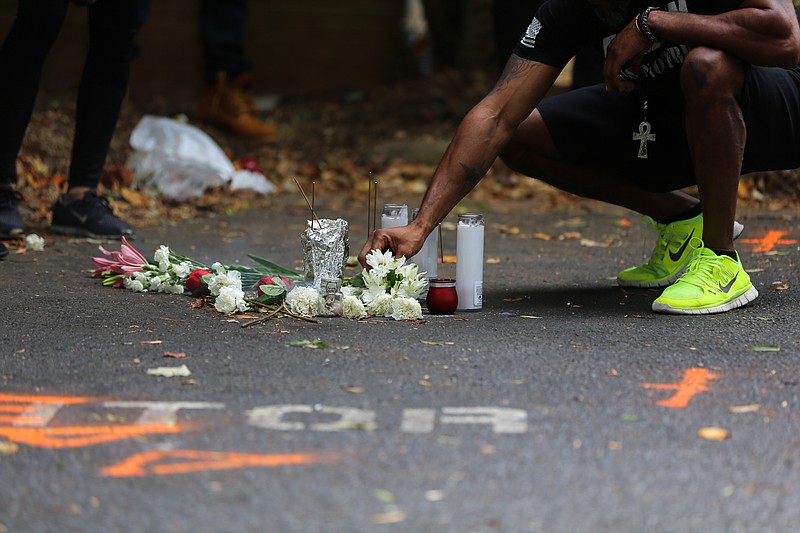Communities like Charlotte - psychologically and at times physically torn apart by anger over real or perceived police bias or inadequate training - should take a breath and step toward openness.
Instead, they far too often hide behind the words "under investigation" - as Charlotte authorities are doing now.
Charlotte-Mecklenburg Police Chief Kerr Putney said Thursday that he has no plans to release the video of the shooting that killed Keith L. Scott earlier this week, though he does intend to show it to the man's family.
Scott, 43, was shot while officers were serving a warrant on someone else. There are starkly different accounts about what happened. The police say Scott, who had been sitting in his car waiting for his son, got out of the car and was holding a gun before he was shot; friends and family say he held a book.
A new North Carolina law will go into effect in a few weeks that can stop the public from seeing police shooting video, and community residents calling for the video's release immediately have said they wonder if the chief is not stalling until that law becomes effective. The chief has countered that to protect the integrity of an investigation, it is not the department's practice to release video to the public.
"Even though we're investigating, we probably won't be long term," he said, citing a request that the FBI take over the inquiry. "I'm not going to release anything that would be on somebody else to release."
The chief also has said the video did not definitively show Scott pointing a gun. It is legal in North Carolina to carry a gun, so even if Scott had a gun, unless he pointed it at police, there should have been no excuse for police to fire on him.
Likewise, there is no excuse for violent rioting. Protesting is acceptable, rioting is not. But both come - as they did in Charlotte - as a result of a growing and very understandable lack of trust between communities and police.
Most police video exonerates officers accused of excessive force, but when police camera footage does not exonerate officers, it makes Americans understand that decades of complaints of police abuse, especially toward people of color, must no longer be dismissed.
In the past few years, Americans have watched too many black men inexcusably shot to death by officers - sometimes through police dashboard cameras or body cams and sometimes through witnesses' cellphone videos. Any lack of trust is increased when police refuse community efforts to seek transparency - especially when authorities use the "evidence" excuse.
There is evidence and there is transparency. The two are not mutually exclusive.
The truth is the truth. Withholding it is dishonest - no matter what that truth shows.
